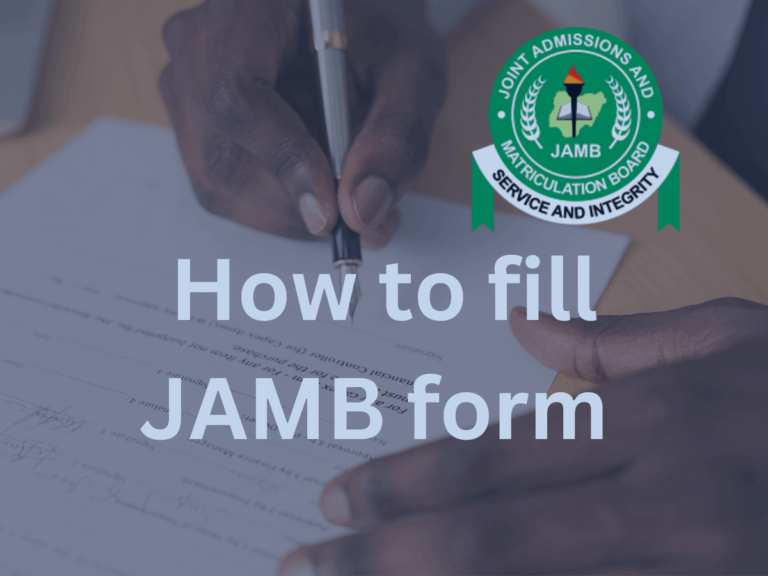JAMB subject combination for pharmacy
Humans get sick. Humans need quality medicine. Humans need to get medicine in the right quarters. The pharmacy outlet is one of the approved places for people to go and get medicine. This makes the pharmaceutical industry an indispensable sector of the healthcare system. After diagnosis from a doctor or consultant, patients are directed to go to a pharmacy to have medicine dispensed to them.
To become a pharmacist in Nigeria, you need to fulfill some requirements like getting the correct JAMB subject combination for pharmacy, among others.
Who is a pharmacist?
A pharmacist is a professional in the healthcare system, whose job is to use, store, provide and preserve medicine. They are responsible for guiding you on the right way to use medications and warn you of the side effects of the medicine, or the overdose of such medicine. They dispense medicine based on prescriptions given by doctors or any health care personnel.
WAEC/NECO requirements for pharmacy.
The pharmaceutical industry is not an industry where individuals are trained in the art of reading doctor’s prescriptions as seen in chemist stores. They are trained personnel who are supposed to be giving out the medicines needed by ailing persons.
To become a trained pharmacist in Nigeria, you need to have at least a credit in the 5 relevant subjects in WAEC/NECO. Those subjects include:
1. English language
2. Mathematics
3. Physics
4. Biology
5. Chemistry.
JAMB subject combination for pharmacy
After getting credits in the 5 relevant subjects of pharmacy, then a pharmacy aspirant is eligible to register for JAMB and choose the recommended JAMB subject combination for pharmacy. These subjects qualify his ambitions of being a pharmacist in Nigeria.
The JAMB subject combination includes:
1. Use of English
2. Physics
3. Biology
4. Chemistry
These subjects are meant to test the aspirant’s knowledge of the subjects relevant to pharmacy.
Universities that offer pharmacy in Nigeria.
These are Nigerian universities that offer pharmacy. This top-tier course is not approved in every Nigerian university, and studying pharmacy in a school where pharmacy is not registered with the Nigeria University Commission (NUC) is tantamount to wasting time. That is why we compiled a list of Nigerian universities where pharmacy is approved.
Check below for the full list:
- Ahmadu Bello University, Zaria, Kaduna State– ABU
- Bayero University, Kano, Kano State–BUK
- Bingham University, Karu, Nasarawa State
- Chukwuemeka Odumegwu Ojukwu University, Uli, Anambra State– COOU
- Delta State University, Abraka, Delta State–DELSU
- Enugu State University Of Science And Technology, Enugu, Enugu State–ESUT
- Gombe State University, Tudun Wada, Gombe, Gombe State–GSU
- Igbinedion University, Okada, Benin City, Edo State
- Kaduna State University, Kaduna, Kaduna State–KASU
- Madonna University, Elele, Rivers State
- Niger Delta University, Wilberforce Island, Bayelsa State–NDU
- Obafemi Awolowo University, Ile-Ife, Osun State–OAU
- Olabisi Onabanjo University, Ago-Iwoye, Ogun State–Oou
- Nnamdi Azikiwe University, Awka, Anambra State–-UNIZIK
- University Of Nigeria Nsukka, Enugu State–UNN
- University Of Ibadan, Ibadan, Oyo State–UI
- University Of Port-Harcourt, Rivers State– UNIPORT
- University Of Ilorin, Ilorin, Kwara State– UNIILORIN
- University Of Benin, Benin City, Edo State– UNIBEN
- University Of Jos, Jos, Plateau State – UNIJOS
- University Of Maiduguri, Borno State – UNIMAID
- University Of Lagos, Lagos State – UNILAG
- Usmanu Danfodio University, Sokoto, Sokoto State – UDU
- University Of Uyo, Akwa Ibom State – UNIUYO
Frequently asked questions about pharmacy in Nigeria.
Question: How many years to study pharmacy in Nigeria?
Answer: It takes 5 years to study pharmacy in Nigeria. After graduation, the graduating pharmacists are to undergo a one-year internship as well.
Conclusion
Pharmacy in Nigeria is an evergreen industry, as there is always a need to issue medicine to sick people, and educate people on the effects of the medicines they take.
Notwithstanding the attractiveness of the pharmaceutical industry to a lot of people; to study pharmacy, you will need to get your SSCE credits in relevant subjects, JAMB subject combination for pharmacy, and choose a school that offers pharmacy.
If pharmacy is your preferred course in the university, then you need to this article to know what it entails, and the requirements needed to be satisfied to be a professional pharmacist.
Make a move. Good luck.












